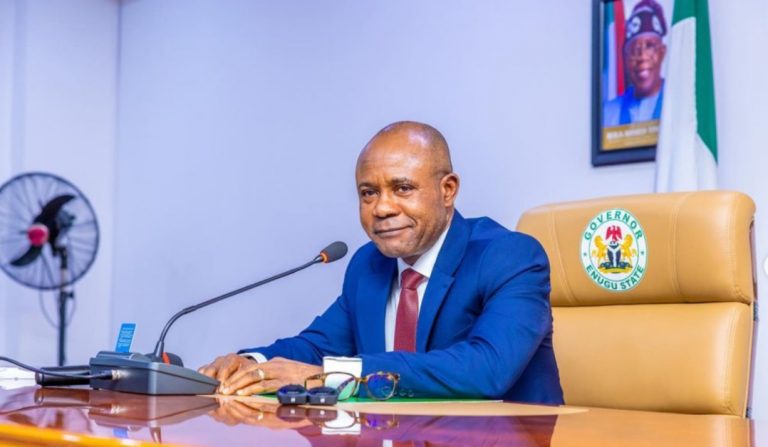
Enugu State governor Peter Mba on Tuesday presented an ambitious N971 billion budget for the 2025 fiscal, marking a giant leap from the 2024’s N521.5 billion budget, with N837.9 billion allocated for capital expenditures.
The governor said in a statement that the budget, titled “Budget of Exponential Growth and Inclusive Prosperity”, is a tool to elevate Enugu’s socioeconomic status.
While presenting the budget to the Enugu State House of Assembly, he reiterated his administration’s commitment to eradicating poverty and making Enugu one of the top three Nigerian states by GDP.
Register for Tekedia Mini-MBA edition 19 (Feb 9 – May 2, 2026): big discounts for early bird.
Tekedia AI in Business Masterclass opens registrations.
Join Tekedia Capital Syndicate and co-invest in great global startups.
Register for Tekedia AI Lab: From Technical Design to Deployment (next edition begins Jan 24 2026).
“This N971 billion budget represents our commitment to transforming Enugu into one of the top three states in Nigeria by GDP while eradicating poverty in our communities. It is a bold and deliberate step towards achieving exponential growth and inclusive prosperity for Ndi Enugu,” he said.
His strategic focus on allocating N837.9 billion, 86% of the budget, to capital expenditure has drawn accolades from policy analysts and stakeholders who view it as a transformative approach to long-term development.
With recurrent spending standing at N133.1 billion (14%), Mba highlighted key allocations of the budget, emphasizing sectors that are critical to human capital development and economic sustainability.
They are as follows:
- Education: A substantial N320.6 billion (33.2% of the total budget) has been allocated to education, reflecting the governor’s belief in its role as a cornerstone of economic and social development.
- Healthcare: The sector will receive N45.8 billion to enhance service delivery and improve health outcomes.
- Infrastructure: With N213.1 billion earmarked, the state plans to upgrade roads, expand public works, and modernize critical infrastructure.
- Agriculture: To combat food inflation and drive agro-industrialization, N82.3 billion will be invested in agriculture.
- Transportation: An allocation of N41.1 billion will support key initiatives, including the expansion of Enugu Air with four new aircraft, the concession of Akanu Ibiam International Airport, and the establishment of an international cargo terminal.
Governor Mba’s decision to dedicate 86% of the budget to capital expenditure has been hailed as transformative. Analysts note that this prioritization reflects a commitment to driving infrastructure and economic development, with many describing the budget as a model for other states.
However, concerns have been raised about certain aspects of the budget. Critics have questioned the governor’s inclusion of what they term “white elephant projects,” particularly the decision to float a state-owned airline. While the plan to expand Enugu Air and concession the Akanu Ibiam International Airport is ambitious, some argue that such ventures may divert attention and resources from projects that could have a more immediate and tangible impact on the populace.
Many have noted that a state-owned airline might sound innovative, but in a region grappling with poverty and underdevelopment, the focus should be on initiatives that will lift people out of hardship.
Leadership Reputation in the Southeast
Governor Mba’s performance since assuming office has earned him a reputation as one of the standout governors in Nigeria. Alongside Abia State Governor Alex Otti, he has championed reforms and innovative policies aimed at economic growth and fiscal independence. Enugu State’s Internally Generated Revenue (IGR) growth is a testament to this, rising from N37.4 billion in 2023 to a projected N144.7 billion by September 2024 — a remarkable 286% increase.
This growth reflects Mba’s aggressive economic reforms, which aim to reduce reliance on federal allocations and achieve fiscal independence. His administration has also focused on education, healthcare, and infrastructure.
However, while the budget’s transformative vision has been widely praised, there is a growing call for a stronger emphasis on grassroots development, job creation, and poverty alleviation. The government has been urged to channel resources towards urbanization and strengthening rural economies, rather than luxury projects.



